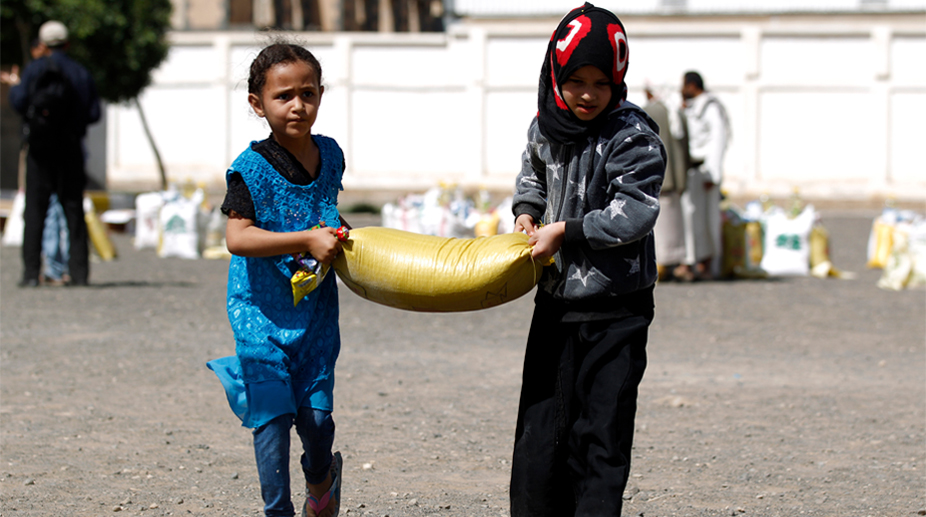Kenya secures funding to tackle climate change challenges
The United Nations (UN)-backed Green Climate Fund (GCF) has approved 50 million US dollars for key projects to bolster climate resilience and promote sustainable development in Kenya.

Yemeni children carry food distributed by a local charity in the capital city of Sanaa (Photo: AFP)
The UN humanitarian chief has decried the “man-made catastrophe” in Yemen, saying air strikes and armed clashes have increased dramatically, with millions of people facing the spectre of famine and “the world’s largest-ever, single-year cholera outbreak.”
Stephen O’Brien urged the immediate reopening of the airport in the capital Sanaa to civilians and the lifting of restrictions on commercial imports coming through the port of Hodeida, which handles some 70 per cent of goods coming into Yemen.
Advertisement
“The Yemeni people’s suffering has relentlessly intensified,” he told the UN Security Council on Friday. “In 2017, the number of air strikes per month is three times higher than last year, and monthly reports of armed clashes are up by more than 50 per cent.”
Advertisement
O’Brien said 17 million Yemenis don’t know where their next meal is coming from, nearly 7 million are facing the threat of famine and almost 16 million lack access to clean water and sanitation. The World Health Organization said Monday that the cholera outbreak has killed 2,000 people and infected an estimated 500,000.
“This human tragedy is deliberate and wanton, it is political and, with will and with courage, which are both in short supply, it is stoppable,” O’Brien said.
The UN special envoy for Yemen, Ismail Ould Cheikh Ahmed, told the Security Council by video link that “it is no secret that there are many merchants of war in Yemen who do not want peace.”
But he said the UN will continue working with Yemenis “to mainstream the language of peace and reach a political solution.”
Yemen, which is on the southern edge of the Arabian Peninsula, has been engulfed in civil war since September 2014, when Houthi Shiite rebels swept into the capital Sanaa and overthrew President Abed-Rabbo Mansour Hadi’s internationally recognised government.
In March 2015, a Saudi-led coalition began a campaign in support of Hadi’s government and against Houthi forces allied with ousted President Ali Abdullah Saleh. Since then, the Iranian-backed Houthis have been dislodged from most of the south, but remain in control of Sanaa and much of the north.
The war in Yemen has killed over 10,000 civilians and displaced 3 million people.
Advertisement